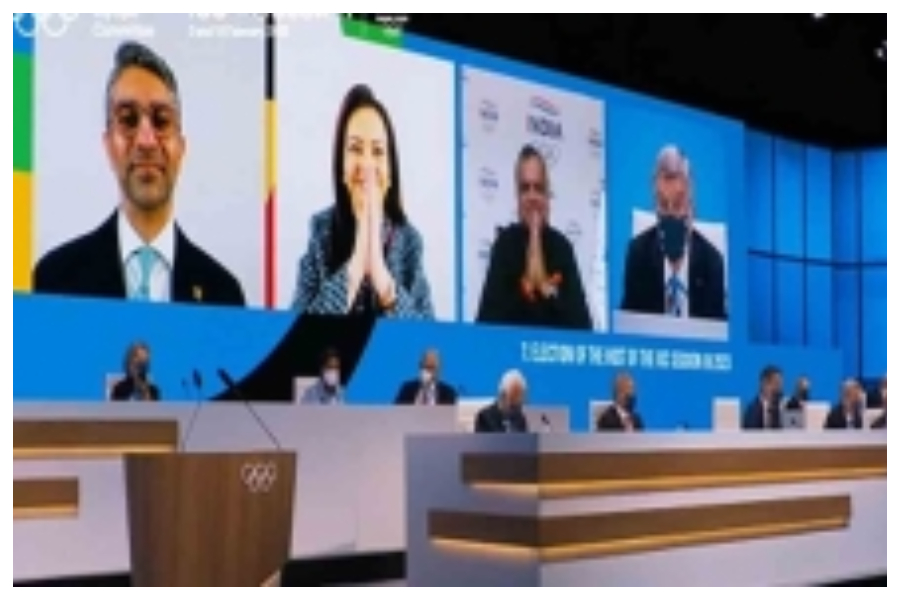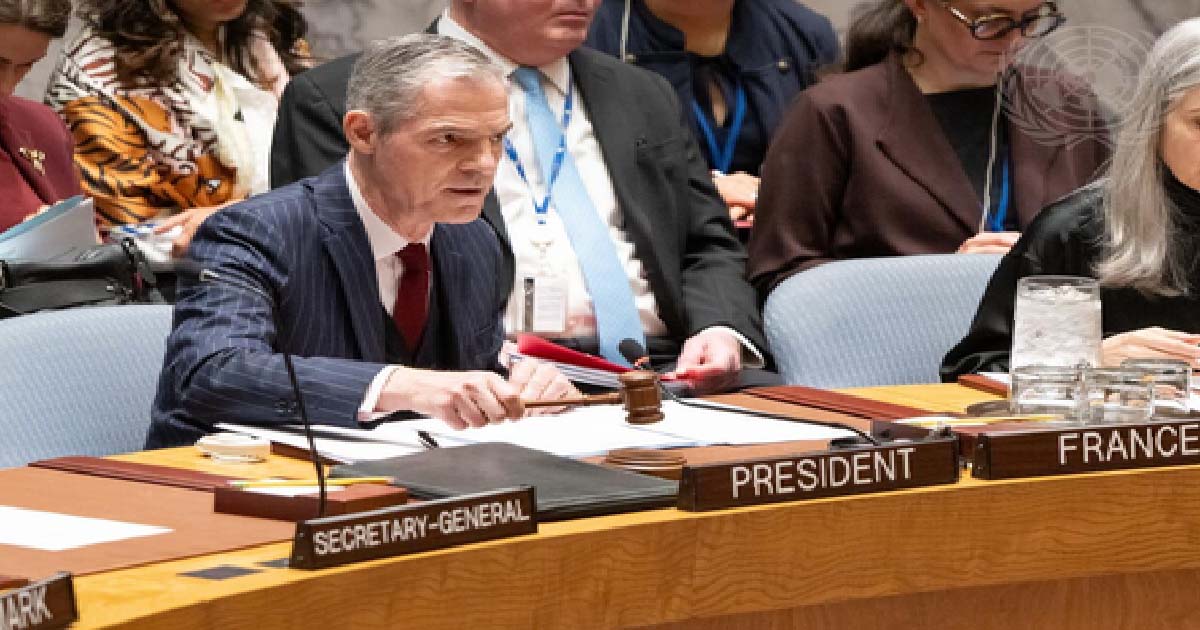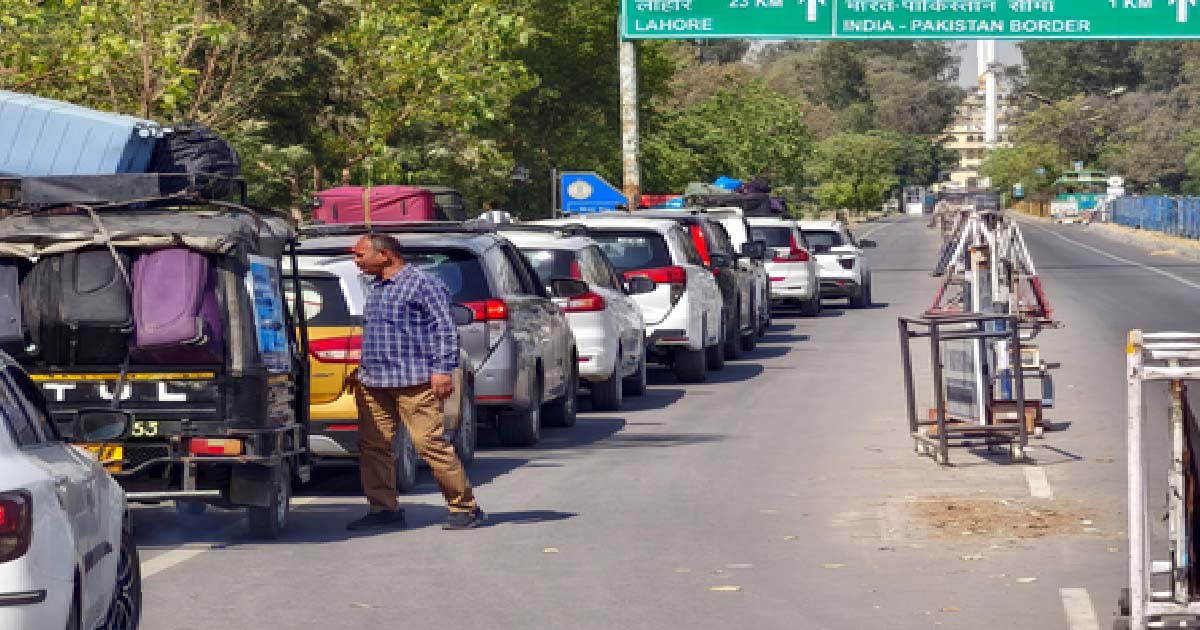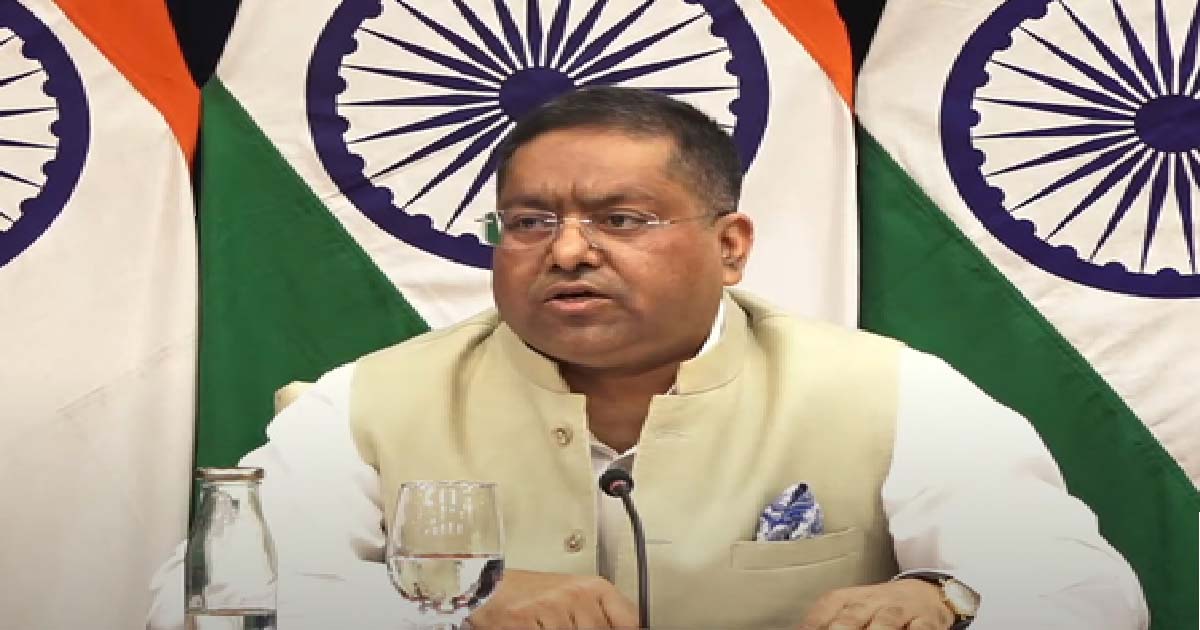International
IOC member Nita Ambani hails decision to award Mumbai IOC session in 2023

International Olympic Committee (IOC) member Nita Ambani has described Saturday’s overwhelming decision to award India the right to host the IOC Session in Mumbai in 2023 as “a significant development for Indias Olympic aspirations and a matter of great pride and joy”.
Mumbai received a historic 99 per cent of the votes in favour of its bid from the delegates participating in the process, with 75 members endorsing its candidature to host the IOC session in 2023.
An IOC session is the annual meeting of the members of the IOC, comprising 101 voting members and 45 honorary members. It discusses and decides on the key activities of the global Olympics movement including adoption or amendment of the Olympic Charter, election of IOC members and office bearers and election of the host city of Olympics.
The decision confirms India will be hosting this prestigious IOC meeting for the first time since 1983, in what is set to be the start of a new era of engagement between India’s youthful population and the Olympic Movement.
Nita Ambani also reaffirmed her long standing commitment towards enabling the country hosts the Youth Olympic Games and the Olympic Games in the future.
“The Olympic Movement is back to India after a 40-year wait! I am truly grateful to the International Olympic Committee for entrusting India with the honour of hosting the IOC Session in Mumbai in 2023,” said Nita Ambani.
“This will be a significant development for India’s Olympic aspiration and will herald the start of a new era for Indian sport.
“Sport has always been a beacon of hope and inspiration for millions around the world… We are one of the youngest countries in the world today and I’m excited for the youth of India to embrace and experience first-hand the magic of the Olympics.
“It is our dream to strengthen this partnership further and host the Olympic Games in India in the years to come,” she added.
An Indian delegation, comprising Nita Ambani, the first woman to be elected as an IOC member from India, and Indian Olympic Association (IOA) President Narinder Batra, Youth Affairs and Sports Minister Anurag Singh Thakur, and India’s first individual Olympic gold medallist (Beijing 2008, shooting) Abhinav Bindra, presented a compelling case during the 139th IOC Session, held alongside the ongoing Winter Olympics in Beijing.
The delegation spoke of the unique opportunity for the Olympic Movement to engage with India’s passionate sports fans.
“Nearly half of India’s population, over 600 million, are under 25 years of age,” said Nita Ambani, during her speech to IOC delegates.
“This makes India one of the most crucial and exciting places to nurture and grow the Olympic Movement. Inspired by the Olympic Values Education Programme, it is our mission to identify potential talent and guide them to greatness in the world of sport. To coincide with the Olympic Session 2023, we propose to launch a series of elite sports development programmes for youth across deprived communities.”
Speaking at the successful conclusion of the bidding process, IOA President Narinder Batra said: “I thank Mrs Nita Ambani for her vision and leadership and also thank all my IOC Member colleagues for their support, I cannot wait to see you here in Mumbai next year. This is the start of a new era for India sport e an era that features the long-term goal of hosting the Olympic Games in India. We are ambitious and recognise our objectives are bold. But India is on an exciting journey and we want the Olympic Movement to play a central part in building a brighter future for our next generation. Delivering a truly memorable IOC Session in Mumbai in 2023, with a strong emphasis on youth potential, sustainability, and innovation, will be one of the first steps to showcase India’s new sporting capacity.”
The Session, to be held in the summer of 2023, will be hosted at the state-of-the-art, brand new Jio World Convention Centre in Mumbai.
Situated in the heart of the city at Bandra Kurla Complex, the JWC is the largest convention centre in India and will start operations in early 2022.
International
UNSC asks all countries to cooperate in bringing Pahalgam terrorists, backers to justice

United Nations, April 26: The Security Council has “condemned in the strongest terms” the Pahalgam terrorist attack and urged all countries to cooperate in bringing all those involved in the massacre, to justice.
The members of the Security Council “stressed that those responsible for these killings should be held accountable, and urged all States, in accordance with their obligations under international law and relevant Security Council resolutions, to cooperate actively with all relevant authorities in this regard”, Council President Jerome Bonnafont said in a Press statement on Friday.
A front organisation of the Pakistan-based terrorist group Laskhar-e-Tayiba has owned responsibility for the attack.
The statement issued by France’s Permanent Representative Bonnafont who is the Council president for this month, took a broad view of those involved in the massacre by including the financiers and sponsors.
“The members of the Security Council underlined the need to hold perpetrators, organisers, financiers and sponsors of this reprehensible act of terrorism accountable and bring them to justice”, the statement said.
Pakistan, which is on the Council as an elected member, went along with the other members in endorsing the statement, committing itself – at least on paper – to bringing those involved to justice.
A Press statement expresses the consensus of the Council and carries moral authority, while not being legally binding like a resolution.
The statement also shot down the attempts by some in Pakistan to give terrorist attacks a veneer of justification.
“The members of the Security Council reiterated that any acts of terrorism are criminal and unjustifiable, regardless of their motivation, wherever, whenever and by whomsoever committed”, it said.
The Council members “reaffirmed the need for all States to combat by all means, in accordance with the Charter of the United Nations and other obligations under international law, including international human rights law, international refugee law and international humanitarian law, threats to international peace and security caused by terrorist acts”, the statement added.
Earlier, the spokesperson for Secretary-General Antonio Guterres hinted that a diplomatic effort by him may be afoot.
Asked by a reporter, if Guterres would speak to leaders of India and Pakistan, Spokesperson Stephane Dujarric said that he hoped to have something to share on that later.
Reiterating the condemnation of the terrorist attacks, Dujarric said, “We again urge both the Government of India and the Government of Pakistan to exercise maximum restraint to ensure the situation does not deteriorate further.”
When a reporter asserted that the possibility that “two nuclear countries” might “go to war” was getting insufficient attention, Dujarric said, “I don’t agree with your comment. We are paying very close attention to the situation between India and Pakistan.”
International
Wagah-Attari border closure leaves several families in limbo

Islamabad, April 25: Pakistan and India’s decision to shut down the Wagah-Attari border crossing after the deadly Pahalgam terror attack has forced several citizens from both countries to cut short their visit and rush back home.
On Thursday, after both countries announced closure of border crossing and gave a deadline for citizens to leave for their respective countries, at least 28 Pakistanis nationals returned from India while 105 Indian citizens in Pakistan crossed over into India.
A Hindu family from Balochistan’s Sibi was reportedly denied entry into India after the closure of border crossing.
“We were on our way to Indore in Madhya Pradesh to attend a wedding. Seven members of our family were excited to join our relatives in India and take part in the celebrations. But upon reaching Wagah, we learned that the border had been sealed. We will spend the night at Dera Sahib in Lahore and head back home tomorrow,” said Akshay Kumar.
Meanwhile, a Sikh family from India, in Pakistan to attend a wedding, decided to leave for India immediately.
“We had come to Pakistan for a wedding. While the ceremony took place, several important rituals remained. Once we heard the border was closed, we decided to return immediately,” said Raminder Singh, an Indian national.
A Hindu family from Ghotki in Pakistan’s Sindh province, now residing in New Delhi, was visiting Pakistan for the last two months to meet their relatives. However, they are now unsure about getting permission to return to India.
“There are five of us, including my young son and daughter, uncle and aunt. We all hold Pakistani passports and were granted No Obligation to Return to India (NORI) certificate by India. But uncertainty looms now, said a family member named Indira.
“Families with cross-border ties often bear the brunt of rising tensions between the two neighbours. With tensions between Pakistan and India once again on the rise, human connections across borders are becoming the first casualty,” said Asif Memood, a Lahore-based journalist.
“The closure of the Wagah-Attari border has left many families in limbo, uncertain when they will next reunite with their loved ones,” he added.
International
Murder of Hindu leader: India slams Bangladesh, says killing follows pattern of systematic persecution of Hindu minorities

New Delhi, April 19: India on Saturday issued a sharp condemnation of the abduction and brutal killing of Bhabesh Chandra Roy, a prominent Hindu community leader in northern Bangladesh, calling it part of a “pattern of systematic persecution” of minorities under the country’s interim government.
Ministry of External Affairs (MEA) spokesperson Randhir Jaiswal voiced India’s grave concern, stating that the incident reflects an alarming trend of targetted violence against Hindus and other minority groups in Bangladesh.
“We have noted with distress the abduction and brutal killing of Shri Bhabesh Chandra Roy, a Hindu minority leader in Bangladesh. This killing follows a pattern of systematic persecution of Hindu minorities under the interim government, even as the perpetrators of previous such events roam with impunity,” Jaiswal said in a post on social media platform X.
He added, “We condemn this incident and once again remind the interim government to live up to its responsibility of protecting all minorities, including Hindus, without inventing excuses or making distinctions.”
India has previously expressed similar concerns over rising attacks on minorities in Bangladesh, but this latest incident has drawn particular attention due to Roy’s prominence in the Hindu community.
Roy, who served as the Vice-President of the Biral unit of the Bangladesh Puja Udjapan Parishad, was abducted from his residence in Dinajpur district on Thursday evening. According to police and family accounts, he received a phone call around 4:30 p.m., after which four unidentified men arrived on motorcycles and forcibly took him to Narabari village. He was reportedly assaulted and later found unconscious. He was rushed to a hospital in Dinajpur, where he was declared dead on arrival. His wife, Shantana Roy believes the attackers used the call to confirm his location before carrying out the abduction.
Opposition leaders in India also slammed the shocking incident in the neighbouring country.
Congress President Mallikarjun Kharge highlighted that religious minorities, especially Hindus, are being persecuted in Bangladesh.
“Attacks on other religious minorities are also continuing. Recently, the Chief Advisor of Bangladesh made a very condemnable and disappointing comment about the northeastern states of India. The persecution of religious minorities in Bangladesh, human rights violations, and the attempt to erase the memories of the 1971 Liberation War are efforts to weaken the relationship between India and Bangladesh. From 1971 till today, India has always wished for peace and prosperity for all the people of Bangladesh. This is in the best interest of the subcontinent,” he said.
-

 Crime3 years ago
Crime3 years agoClass 10 student jumps to death in Jaipur
-

 Maharashtra1 year ago
Maharashtra1 year agoMumbai Local Train Update: Central Railway’s New Timetable Comes Into Effect; Check Full List Of Revised Timings & Stations
-

 Maharashtra1 year ago
Maharashtra1 year agoMumbai To Go Toll-Free Tonight! Maharashtra Govt Announces Complete Toll Waiver For Light Motor Vehicles At All 5 Entry Points Of City
-

 Maharashtra1 year ago
Maharashtra1 year agoFalse photo of Imtiaz Jaleel’s rally, exposing the fooling conspiracy
-

 National News1 year ago
National News1 year agoMinistry of Railways rolls out Special Drive 4.0 with focus on digitisation, cleanliness, inclusiveness and grievance redressal
-

 Maharashtra1 year ago
Maharashtra1 year agoMaharashtra Elections 2024: Mumbai Metro & BEST Services Extended Till Midnight On Voting Day
-

 National News1 year ago
National News1 year agoJ&K: 4 Jawans Killed, 28 Injured After Bus Carrying BSF Personnel For Poll Duty Falls Into Gorge In Budgam; Terrifying Visuals Surface
-

 Crime1 year ago
Crime1 year agoBaba Siddique Murder: Mumbai Police Unable To Get Lawrence Bishnoi Custody Due To Home Ministry Order, Says Report












